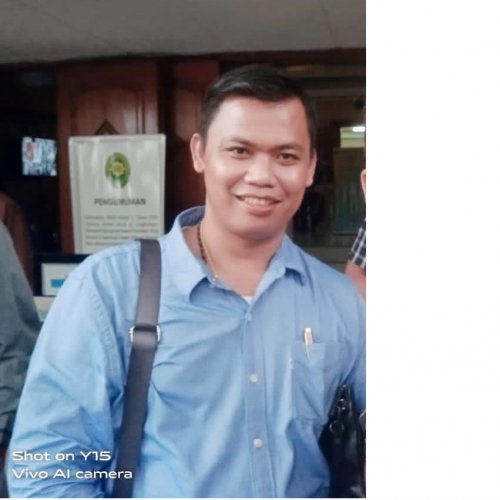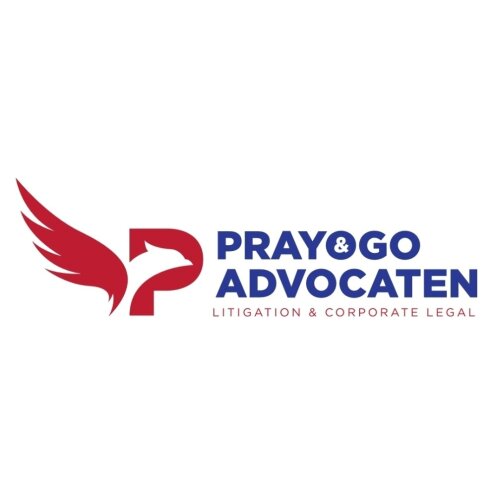Best Art & Cultural Property Law Lawyers in Tangerang
Share your needs with us, get contacted by law firms.
Free. Takes 2 min.
List of the best lawyers in Tangerang, Indonesia
About Art & Cultural Property Law in Tangerang, Indonesia
Art & Cultural Property Law in Tangerang, Indonesia, is a specialized legal field that encompasses the protection, preservation, and management of cultural heritage and property. This branch of law is key in safeguarding the rich tapestry of Indonesia's cultural history, which includes historic artifacts, traditional art forms, and important cultural sites. In Tangerang, the local and national laws intersect to ensure the integrity of these cultural assets, providing guidelines for ownership, trade, and restitution.
Why You May Need a Lawyer
Individuals and institutions may require legal assistance in Art & Cultural Property Law for a variety of reasons:
- Ownership Disputes: When there are conflicting claims over cultural artifacts or artworks.
- Export/Import Concerns: Legal guidance on the lawful trade and movement of cultural property across borders.
- Authenticity and Provenance Issues: In cases involving the authentication of artworks or cultural items.
- Restitution Cases: For the recovery of stolen or illicitly exported cultural property.
- Conservation and Preservation: Legal advice surrounding the protection and preservation of historical sites and artifacts.
- Licensing and Reproduction Rights: For artists and creators dealing with intellectual property issues.
Local Laws Overview
The legal framework governing Art & Cultural Property in Tangerang is a composite of several laws and regulations:
- Law No. 11 of 2010 on Cultural Heritage: This law outlines measures for identifying, protecting, and managing cultural heritage sites and objects.
- Law No. 5 of 2017 on Advancements of Culture: Aims to promote cultural sustainability and protect cultural expressions.
- Presidential Regulation No. 28 of 2019 on Cultural Reserves: Provides guidelines for the management and protection of cultural reserves.
These laws prioritize the protection against illegal trade, deterioration, and misuse of cultural properties, establishing penalties for violations and frameworks for international cooperation.
Frequently Asked Questions
What qualifies as cultural property in Indonesia?
Cultural property in Indonesia includes objects, sites, and cultural expressions that hold historical, artistic, scientific, or cultural significance, such as traditional art, archaeological findings, manuscripts, and architectural landmarks.
Can cultural property be sold internationally?
The sale and export of cultural property are tightly regulated to prevent illegal trade. Before any transaction, it's essential to comply with local laws and obtain necessary permits.
How is cultural property authenticated?
Authentication of cultural property typically involves expert evaluations, provenance research, and consultation with cultural heritage authorities.
What should I do if I find a cultural artifact?
It is advisable to report any findings of cultural artifacts to the local cultural heritage agency and refrain from relocating the item without authorization.
Are there penalties for damaging cultural property?
Yes, under Indonesian law, damaging or destroying cultural property can result in severe legal penalties, including fines and imprisonment.
What are some legal considerations for artists in Tangerang?
Artists should consider intellectual property rights related to their artworks, including copyright, reproduction rights, and licensing agreements.
Can cultural property be reclaimed if it was stolen?
Yes, there are legal frameworks in place that allow for the restitution of cultural property. Legal action can be taken to reclaim stolen items through national and international avenues.
What roles do museums play in cultural property law?
Museums act as custodians of cultural property and must adhere to ethical and legal standards regarding the acquisition, display, and conservation of cultural assets.
How are disputes over cultural property resolved?
Disputes can be resolved through negotiation, mediation, arbitration, or legal proceedings, depending on the nature and complexity of the issue.
How does the law support the conservation of historic sites?
Laws in place aim to allocate resources, provide guidelines, and impose restrictions to ensure the conservation and maintenance of historic sites and structures, often involving public and private partnerships.
Additional Resources
Here are some resources that can be helpful for individuals seeking further information or assistance:
- Ministry of Education and Culture: Offers guidance on cultural heritage and property laws.
- Indonesian National Museum: Provides educational resources and expertise in cultural conservation.
- Local Cultural Heritage Agencies: Regional authorities in charge of cultural property regulation and preservation.
- UNESCO Jakarta Office: Engages in cultural conservation activities in Indonesia and the broader region.
Next Steps
If you are seeking legal assistance in Art & Cultural Property Law, consider the following steps:
- Consultation: Begin by consulting with a lawyer specialized in Art & Cultural Property Law to assess your situation.
- Documentation: Gather all necessary documents and evidence related to your case or inquiry.
- Engagement of Experts: Attorneys may employ experts in authentication, valuation, or restoration to assist in your case.
- Legal Representation: If necessary, hire legal counsel to represent your interests in negotiations or court proceedings.
Consider reaching out to local legal associations or bar councils in Tangerang for recommendations on experienced lawyers in this field.
Lawzana helps you find the best lawyers and law firms in Tangerang through a curated and pre-screened list of qualified legal professionals. Our platform offers rankings and detailed profiles of attorneys and law firms, allowing you to compare based on practice areas, including Art & Cultural Property Law, experience, and client feedback.
Each profile includes a description of the firm's areas of practice, client reviews, team members and partners, year of establishment, spoken languages, office locations, contact information, social media presence, and any published articles or resources. Most firms on our platform speak English and are experienced in both local and international legal matters.
Get a quote from top-rated law firms in Tangerang, Indonesia — quickly, securely, and without unnecessary hassle.
Disclaimer:
The information provided on this page is for general informational purposes only and does not constitute legal advice. While we strive to ensure the accuracy and relevance of the content, legal information may change over time, and interpretations of the law can vary. You should always consult with a qualified legal professional for advice specific to your situation.
We disclaim all liability for actions taken or not taken based on the content of this page. If you believe any information is incorrect or outdated, please contact us, and we will review and update it where appropriate.









